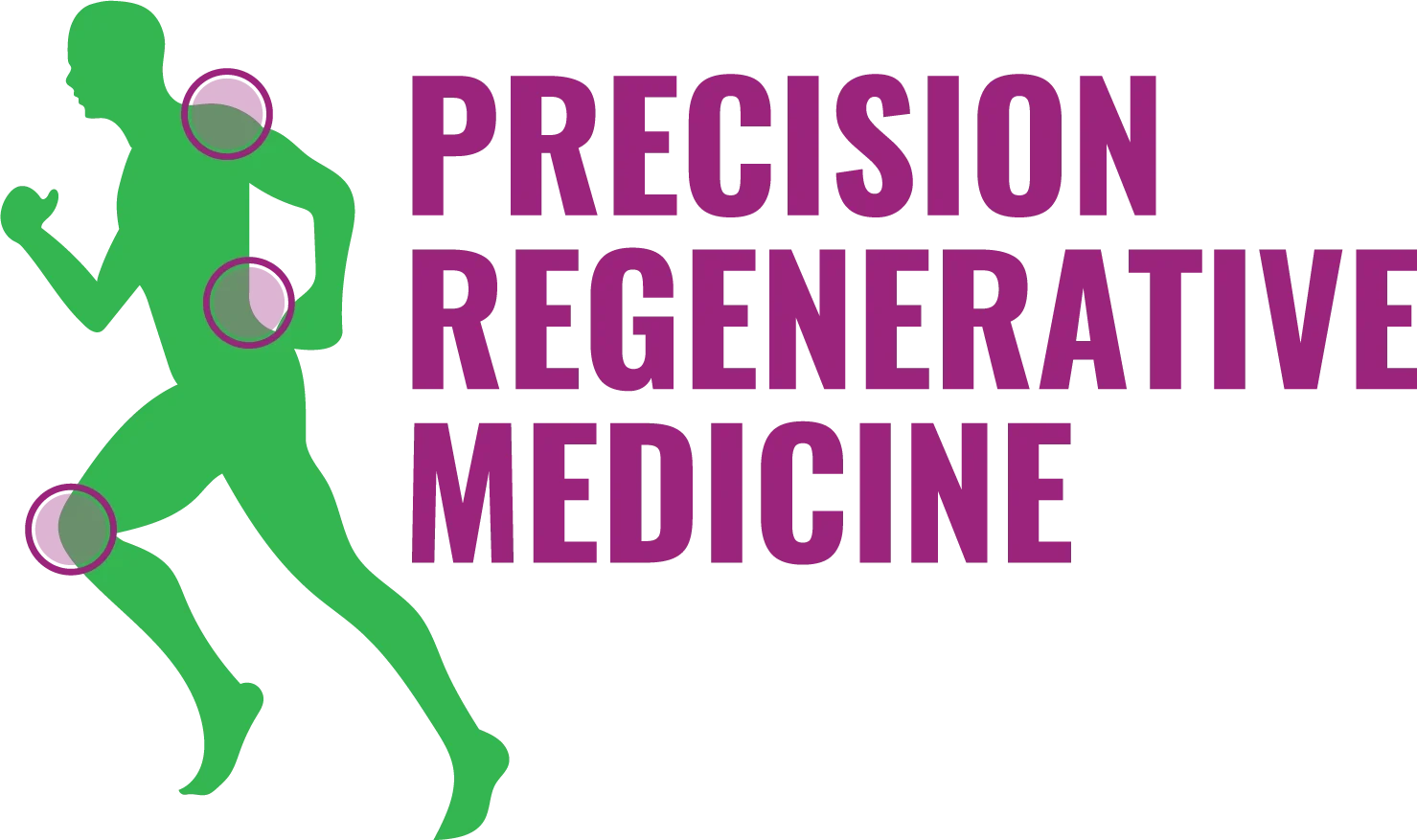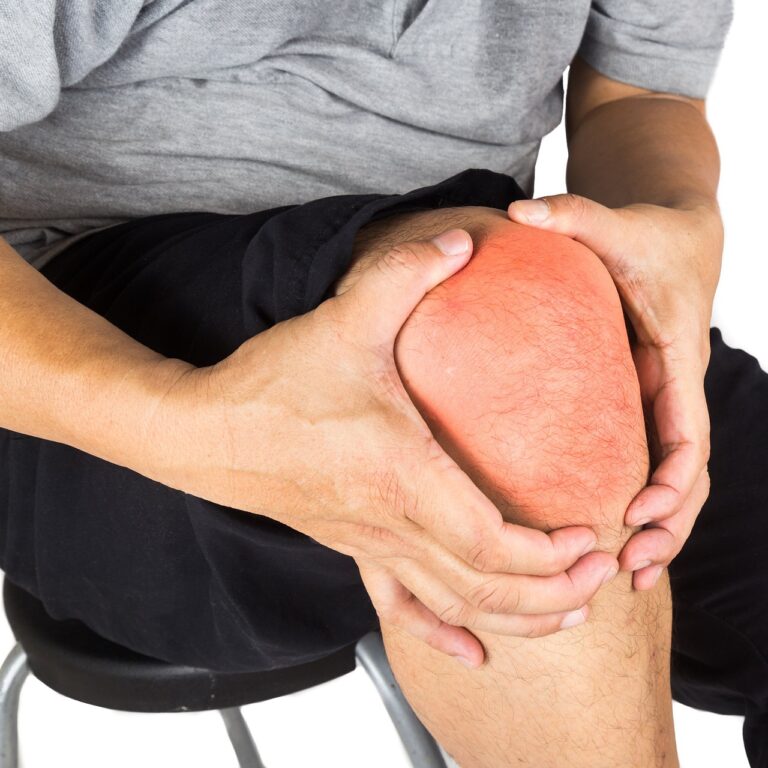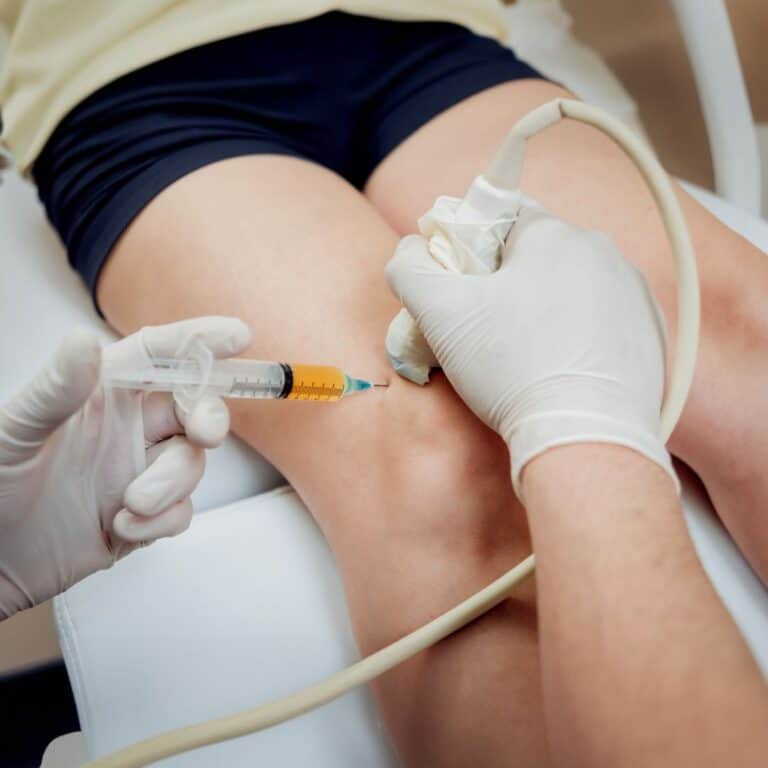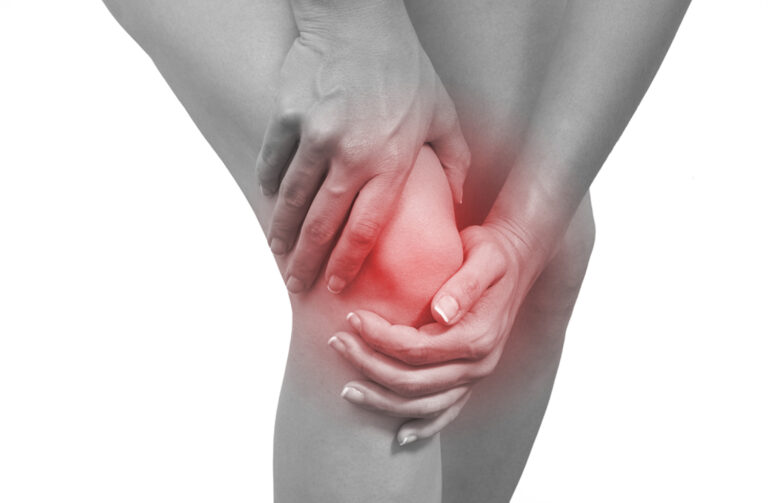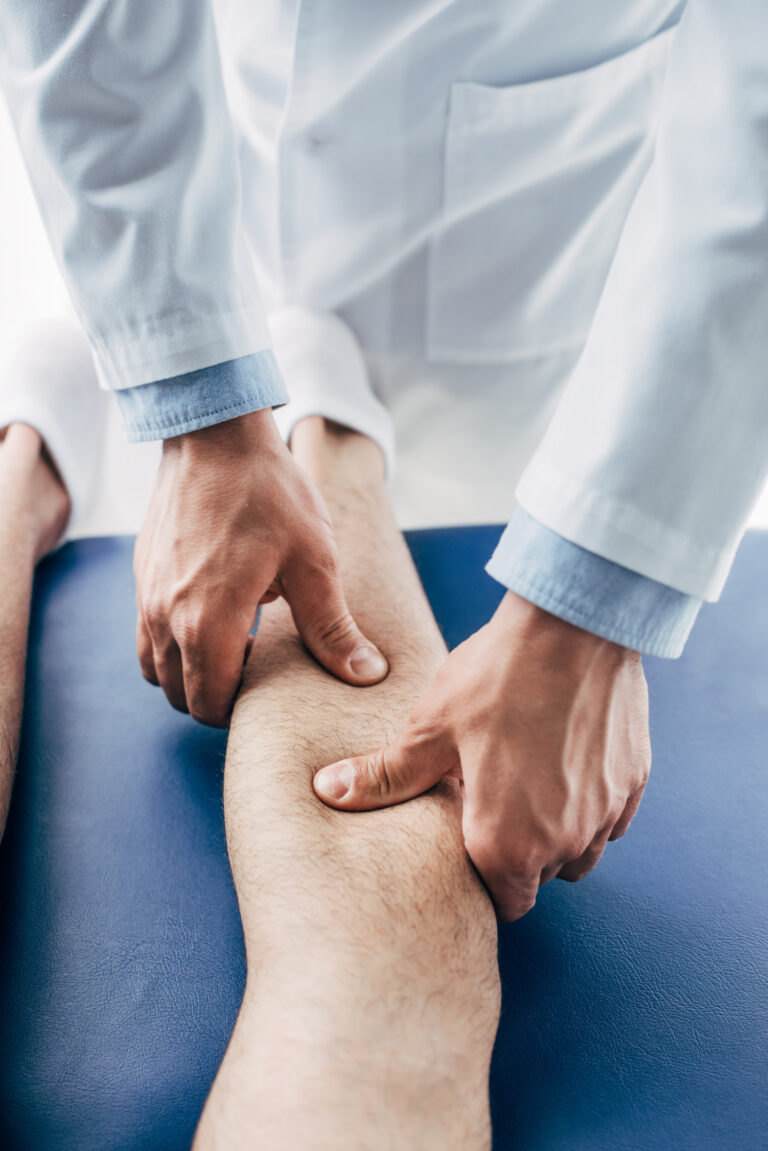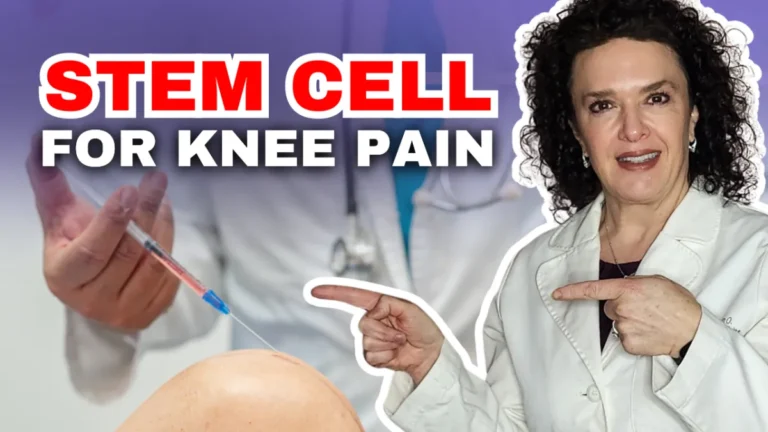Why Your Knee Hurts When Bending
Ever wondered why your knee hurts when you bend it? Dive into this podcast episode where I unravels the reasons behind this knee pain. Discover the roles of cartilage wear, acute injuries, and how diagnostic insights can lead to effective pain management.
Join me as I explore not just the “why” but also the “how” to relieve your knee pain and get back to the activities you love.
Episode Video
The Basics of Knee Joint Pressure
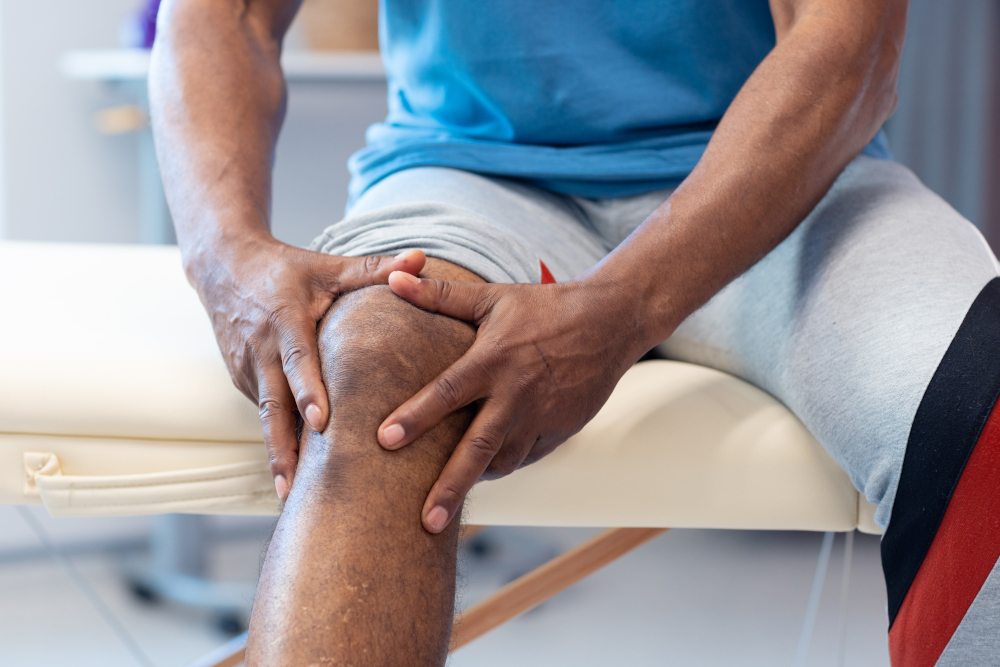
The knee joint is a complex system where the femur, tibia, and fibula meet. When you stand or bear weight, this configuration transmits pressure through the knee. If the space within the joint decreases, often due to wear and tear or conditions like arthritis, the pressure on the joint intensifies, leading to pain during bending.
Wear and Tear
One of the main reasons for knee pain when bending is the deterioration of cartilage due to repetitive movements such as bending, twisting, and weight-bearing. Cartilage acts as a cushion within the knee joint but can wear down over time or due to specific injuries. Scenarios like prior surgeries or treatments, such as steroid injections, might accelerate this wear and tear. For example, removing part of the meniscus, a key component of knee cushioning, can significantly increase the stress on the cartilage.
Acute Injuries and Knee Pain
Apart from chronic conditions, acute injuries can also cause knee pain when bending. Twisting motions or sports activities can lead to torn ligaments or menisci, contributing to immediate and severe pain. Swelling often accompanies these injuries, acting as a protective response by the body to prevent further damage by limiting movement.
Diagnosing the Cause of Knee Pain
Understanding the exact cause of knee pain requires a thorough physical examination. Visual assessments and diagnostic tools like ultrasound or MRI scans are important to observe the internal structures of the knee, including cartilage wear and fluid build-up. These imaging techniques help in determining the extent of damage and are crucial in planning effective treatment strategies.
How Precision Regenerative Medicine Can Help
At Precision Regenerative Medicine, the focus is not only on treating knee pain but understanding its root causes. By diagnosing the specific reasons behind knee pain when bending, the team aims to develop personalized treatment plans. These may include physical therapy, medication, or possibly more advanced regenerative techniques, depending on the severity and nature of the condition.
Final Thoughts
If you’re experiencing knee pain when bending, understanding the underlying reasons is crucial for effective treatment. Whether it’s wear and tear from arthritis or an injury like a torn meniscus, the right diagnosis and treatment can significantly improve your quality of life. If knee pain is slowing you down, consider consulting a specialist who can provide tailored care and solutions.
